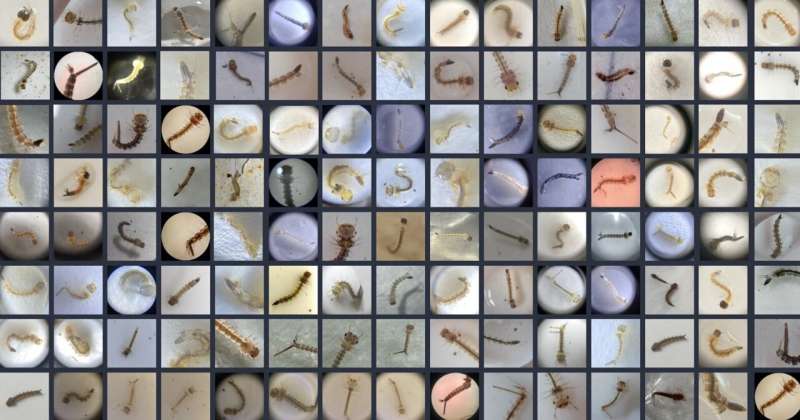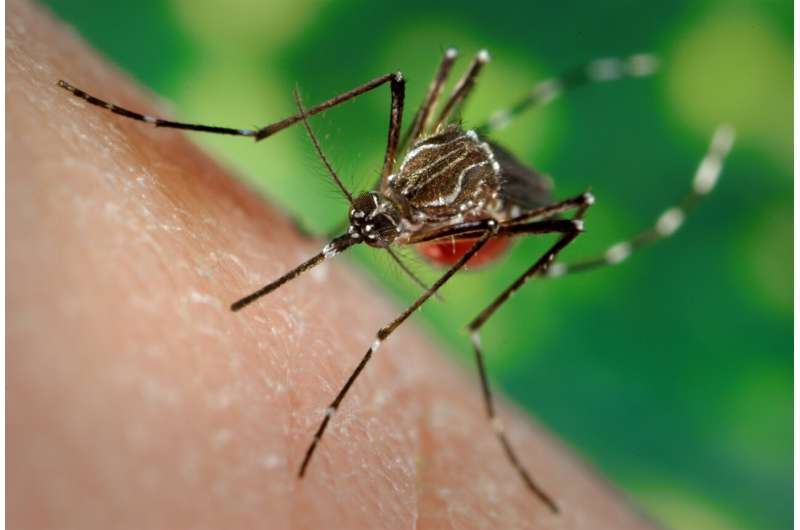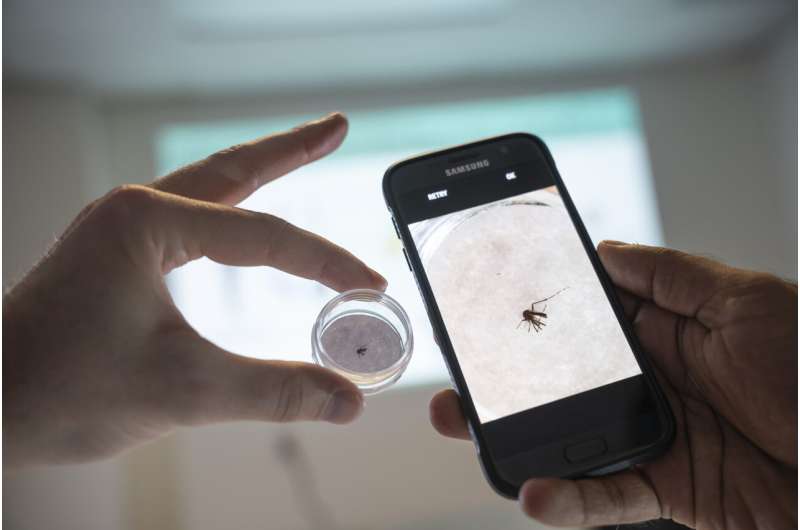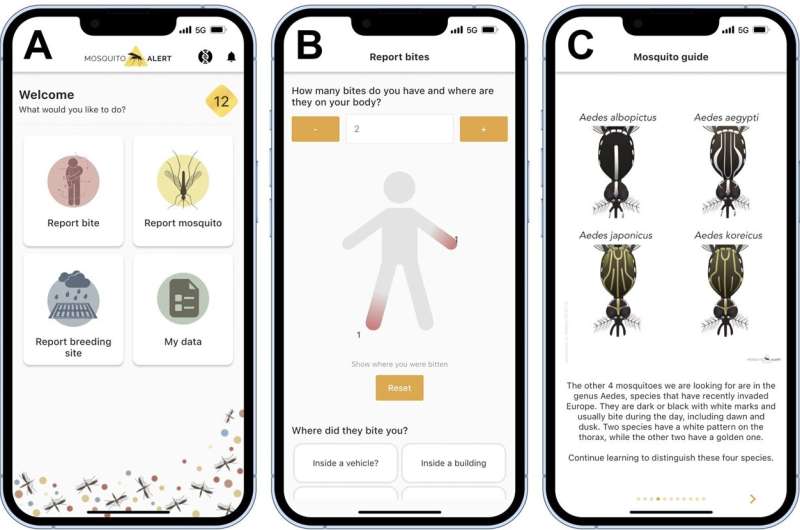
Examples of mosquitoes uploaded to apps used to provide data for the Global Mosquito Observations Dashboard. Credit: USF
To combat the ongoing threat of mosquito-borne diseases worldwide, researchers at the University of South Florida have implemented a mosquito tracking dashboard backed by Citizen Science — a scalable solution that a recent USF study proved effective has proven.
Funded by a four-year grant from the National Science Foundation, the study and Global Mosquito Observations Dashboard are part of a large-scale project to establish global mosquito-borne disease surveillance with automatic mosquito identification.
The dashboard combines data from three partner apps: Mosquito Alert, NASA’s GLOBE Observer, and iNaturalist. Each app leverages citizen science, where everyday people around the world provide photos of mosquitoes with their smartphones.
With the international data combined, the dashboard – which can be accessed via a computer browser or mobile device – has the potential to provide data at a frequency and geographic resolution that would otherwise not be possible due to cost and other limitations.
“This dashboard represents a union of global citizen science platforms for mosquito monitoring and control,” said principal investigator Ryan Carney, assistant professor of integrative biology. “This tool will help mosquito control personnel seek out and destroy invasive species and monitor disease vectors on an international basis, using the georeference computers people carry in their pockets every day: their smartphones.”
Mosquitoes cause nearly 700 million infections and more than a million deaths each year, making mosquitoes the deadliest animal on earth. Because only a small percentage of mosquito species transmit disease, extensive surveillance and accurate identification are critical to community defense.

Example of a mosquito tracked by the new Global Mosquito Observations Dashboard. Photo credit: James Gathany (Centers for Disease Control)
Given the general lack of vaccines and cures, there is a universal need for increased and sustained mosquito surveillance and habitat reduction worldwide. The real-time data available on this dashboard will help researchers, mosquito control workers and policy makers identify disease vectors early.
To test the effectiveness of citizen science for mosquito surveillance, Carney and a team of three USF students asked citizen scientists to target primary vectors of Zika, yellow fever, dengue, and chikungunya. Not only did citizen scientists manage to locate vectors, their efforts also resulted in the first iNaturalist observations in the US of Aedes scapularis, an invasive species that causes yellow fever. The documentation has been shared with local vector control officials in Texas and serves as a model for surveillance in Florida, where the species has recently invaded.

A USF researcher demonstrates how an app uses the new Global Mosquito Observations Dashboard to identify mosquito species for tracking. Credit: USF
The study, recently published in a special issue of the journal insectsserves as a reference for future planning and implementation of Citizen Science projects.
For the remainder of the grant, USF engineering professor Sriram Chellapan will lead efforts to train and test artificial intelligence algorithms to create image recognition software. The software, slated for launch this fall, will be used to identify mosquito species in uploaded citizen science images.
“Our species detection algorithms are particularly accurate at detecting critical mosquito vectors,” Chellapan said. “It will yield valuable tools for citizen-based surveillance to fight disease.”

An example of how the new Mosquito Alert App works. Credit: USF
The algorithms are being tested as part of a new campaign just launched in partnership with the Centers for Disease Control and Prevention to track down the invasive urban malaria vector Anopheles stephensi in Africa. Citizen scientists in Africa are encouraged to share their mosquito photos on MosquitoesInAfrica.org to help with detection.
“Because this work has a greater focus on Africa, the project may support the prevention of mosquito-borne diseases in susceptible populations and prevent deadly outbreaks,” said Karlene Rivera, a graduate student working on the grant at the Carney Lab. “This project has a major impact on the world of artificial intelligence and disease prevention.”
Papua New Guinea mosquito species missing for 90 years found in Australia
Ryan Carney et al., Integrating global citizen science platforms to enable next-generation surveillance of invasive and vector mosquitoes, insects (2022). DOI: 10.3390/insects13080675
Provided by the University of South Florida
Citation: Researchers launch global dashboard to track invasive mosquitoes that transmit deadly diseases (2022, August 2), retrieved August 2, 2022 from https://phys.org/news/2022-08-global-dashboard-track-invasive -mosquitoes.html
This document is protected by copyright. Except for fair trade for the purpose of private study or research, no part may be reproduced without written permission. The content is for informational purposes only.
#Researchers #launch #global #dashboard #track #invasive #mosquitoes #transmit #deadly #diseases

Leave a Comment